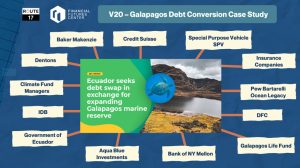Hydrocarbon producing countries will face important fiscal challenges to reduce greenhouse gas emissions in line with the Paris Agreement on Climate Change and then move to a net-zero emission (NZE) scenario. Efforts taken to reduce these emissions will lower demand for fossil fuels globally and result in falling production volumes and decreased prices. As a result, fossil fuel producing countries will face mounting pressures to increase public revenues in order to make up for lost hydrocarbon related revenues, finance their NZE transition and respond to growing social and investment needs.
The complexity of the NZE transition will be determined by the degree of fiscal dependence on hydrocarbons. In the case of Latin America and the Caribbean, large hydrocarbon producing countries such as the Plurinational State of Bolivia, Brazil, Colombia, Ecuador, Mexico and Trinidad and Tobago (LAC6) face a macro-fiscal context that was exacerbated by the COVID-19 pandemic and is not necessarily conducive to the proposed transition NZE scenarios from the International Energy Agency and International Monetary Fund (IMF).
A new technical paper from a team of researchers at the United Nations Economic Commission for Latin America and the Caribbean for the Task Force on Climate, Development and the IMF examines the fiscal impacts of an NZE transition on major hydrocarbon producers in LAC6 countries and outlines next steps for countries to prepare for green, just transitions.
Key findings:
- Public revenues in an NZE scenario would fall sharply in most LAC6 countries, as declining hydrocarbons revenues are not offset by revenues from other sources, particularly carbon taxes.
- Expenditures required to achieve social and investment objectives in an NZE scenario could lead to explosive debt levels, reaching upwards of 200 percent of gross domestic product (GDP) by 2050 in some LAC6 countries.
- Financing needs for LAC6 countries in an NZE scenario are considerable. Achieving a successful transition will require significant long-term financing options at favorable conditions, which currently do not exist.
- The proposed Resilience and Sustainability Trust at the IMF could play a catalytic role in supporting middle-income hydrocarbon producing LAC countries to invest in green structural transformation.




